
Pelourinho: The Heartbeat of Salvador's Cultural Heritage
Pelourinho, often referred to as 'Pelô' by locals, is the vibrant, historic center of Salvador, Brazil. This UNESCO World Heritage site is a treasure trove of colonial architecture, cobbled streets, and brightly colored buildings that transport visitors back to the 17th and 18th centuries. The neighborhood is a living museum, echoing the legacy of Salvador's African, Portuguese, and indigenous influences. Strolling through Pelourinho, you'll encounter lively squares such as the Largo do Pelourinho and Largo Terreiro de Jesus, where street performers and musicians fill the air with the rhythms of samba and capoeira. The area is also home to striking churches, including the ornate São Francisco Church and Convent, known for its gilded interiors, and the Baroque-style Cathedral Basilica of Salvador. The neighborhood's cultural richness extends to its many museums and galleries, like the Afro-Brazilian Museum, which showcases the profound impact of African culture on the region. At night, Pelourinho transforms into a hub of entertainment, with its numerous bars, restaurants, and music venues offering a taste of Salvador's vibrant nightlife. From traditional Bahian cuisine to energetic live performances, Pelourinho is a feast for the senses.
Local tips in Pelourinho
- Wear comfortable shoes to navigate the cobbled streets with ease.
- Visit during the day to fully appreciate the architectural details and vibrant colors of the buildings.
- Check out the local schedule for live music and cultural events happening in the squares.
- Be mindful of your belongings, as the area can get crowded with tourists.
- Try traditional Bahian dishes like acarajé from street vendors for an authentic culinary experience.
Pelourinho: The Heartbeat of Salvador's Cultural Heritage
Pelourinho, often referred to as 'Pelô' by locals, is the vibrant, historic center of Salvador, Brazil. This UNESCO World Heritage site is a treasure trove of colonial architecture, cobbled streets, and brightly colored buildings that transport visitors back to the 17th and 18th centuries. The neighborhood is a living museum, echoing the legacy of Salvador's African, Portuguese, and indigenous influences. Strolling through Pelourinho, you'll encounter lively squares such as the Largo do Pelourinho and Largo Terreiro de Jesus, where street performers and musicians fill the air with the rhythms of samba and capoeira. The area is also home to striking churches, including the ornate São Francisco Church and Convent, known for its gilded interiors, and the Baroque-style Cathedral Basilica of Salvador. The neighborhood's cultural richness extends to its many museums and galleries, like the Afro-Brazilian Museum, which showcases the profound impact of African culture on the region. At night, Pelourinho transforms into a hub of entertainment, with its numerous bars, restaurants, and music venues offering a taste of Salvador's vibrant nightlife. From traditional Bahian cuisine to energetic live performances, Pelourinho is a feast for the senses.
Iconic landmarks you can’t miss
Church and Convent of San Francisco
Discover the Golden Church of Salvador, a UNESCO World Heritage Site, with stunning Baroque architecture, intricate carvings, and rich history.
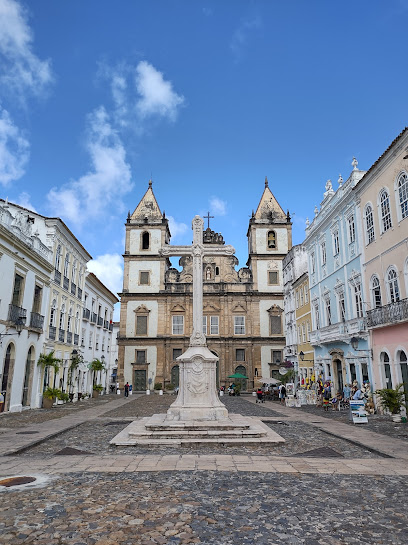
Foundation Casa de Jorge Amado
Explore the life and works of Jorge Amado at this cultural center in Salvador's historic Pelourinho, a tribute to Bahian literature and heritage.

Largo Terreiro de Jesus
Experience the vibrant culture and history of Salvador at Largo Terreiro de Jesus, a lively plaza in the heart of Pelourinho.
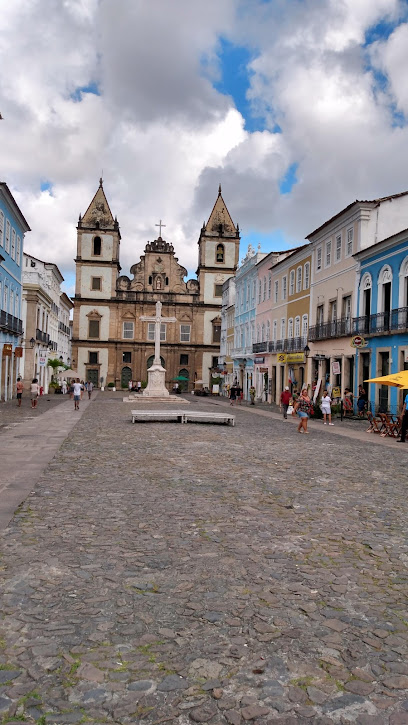
Centro Histórico
Explore Salvador's UNESCO-listed historic center, a vibrant tapestry of colonial architecture and Afro-Brazilian culture.
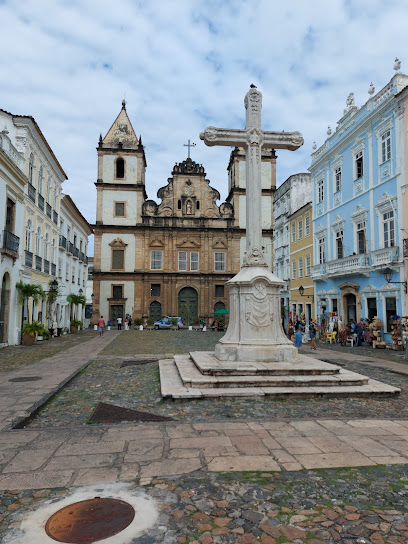
Largo Pedro Arcanjo
Experience the vibrant culture of Salvador at Largo Pedro Arcanjo, a historic square in Pelourinho hosting music, art, and culinary delights.
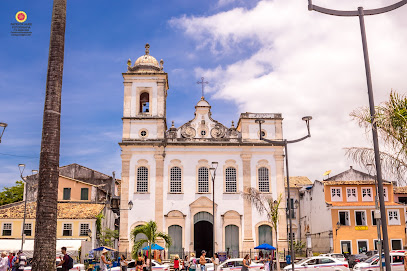
Fallen Cross Monument
Discover the Fallen Cross Monument in Salvador: a striking tribute to history and resilience in the heart of Bahia's cultural gem.
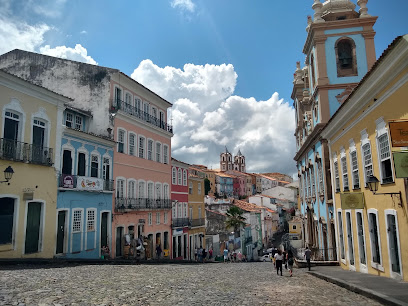
Centro Histórico de Salvador, Bahia
Discover Brazil's colonial heart in Salvador's Centro Histórico, a vibrant UNESCO site blending history, culture, and Afro-Brazilian traditions.
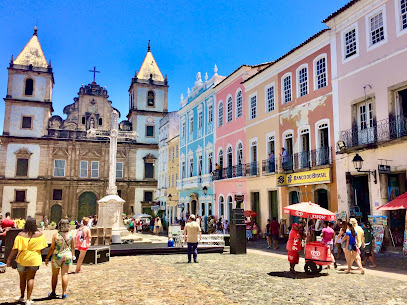
Largo do Pelourinho
Explore Largo do Pelourinho, Salvador: a vibrant UNESCO site blending colonial history with Afro-Brazilian culture, music, and stunning architecture.
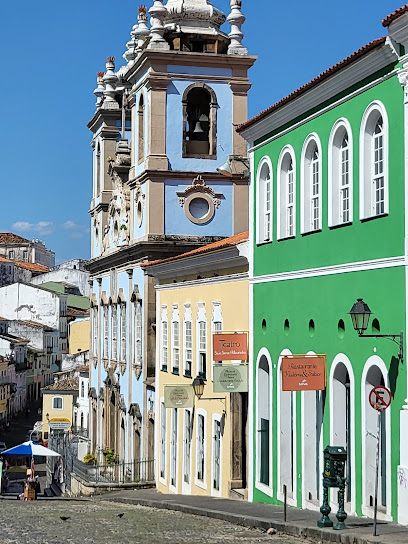
Museu Tempostal
Explore a captivating collection of postcards, photos, and prints showcasing Bahia's rich history at this Pelourinho museum.
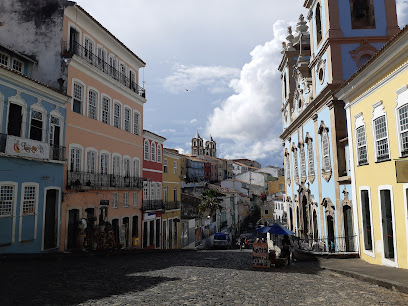
Estátua Dom Pedro Fernandes Sardinha
A historical landmark in Salvador's Pelourinho, honoring Brazil's first bishop and the area's vibrant colonial past.
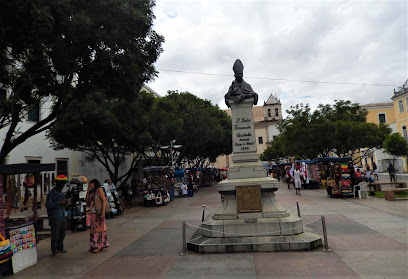
Unmissable attractions to see
Church and Convent of San Francisco
Discover a breathtaking Baroque masterpiece in Salvador: gilded carvings, stunning azulejos, and rich history await at the Church and Convent of San Francisco.
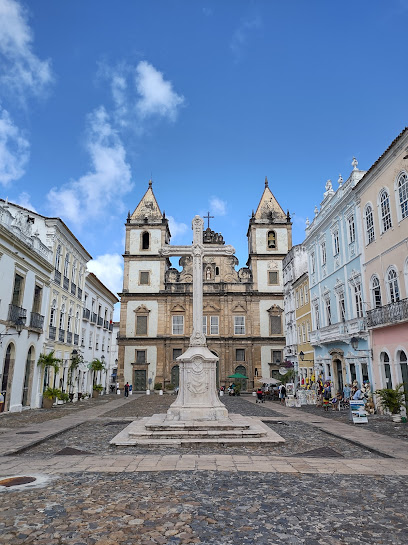
Foundation Casa de Jorge Amado
Discover the life and literary legacy of Jorge Amado in the heart of Salvador's historic Pelourinho district.

Largo Terreiro de Jesus
Experience the vibrant heart of Salvador's Pelourinho at Largo Terreiro de Jesus, a historic plaza filled with culture, architecture, and Afro-Brazilian spirit.
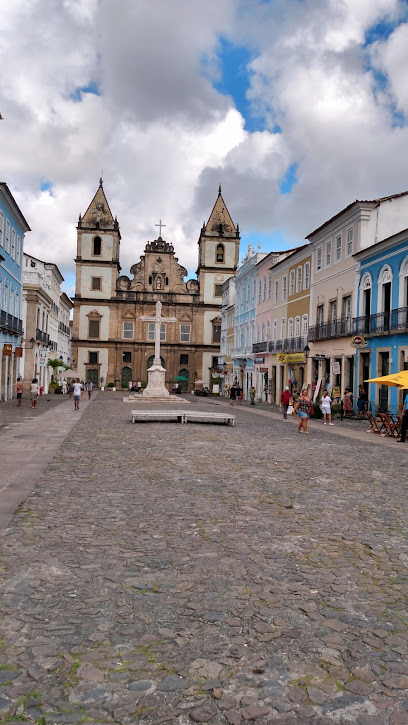
Casa do Carnaval da Bahia
Immerse yourself in the vibrant history and culture of Bahia's world-famous Carnival at this interactive museum in Salvador's Pelourinho district.
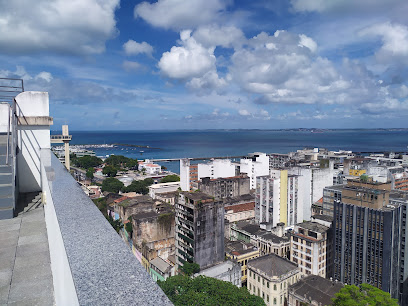
Cathedral of Salvador
Discover Brazil's sacred art at the Cathedral Basilica of Salvador, a UNESCO World Heritage Site in the heart of Pelourinho.
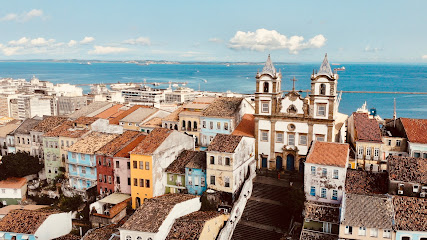
Centro Histórico de Salvador, Bahia
Explore the vibrant streets of Centro Histórico de Salvador, a UNESCO World Heritage Site rich in history, culture, and Bahian flavor.
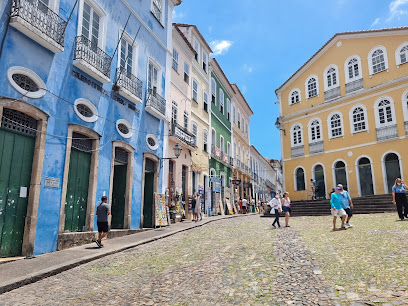
Museu Abelardo Rodrigues
Discover Brazilian sacred art in a historic setting at the Museu Abelardo Rodrigues, located in Salvador's vibrant Pelourinho district.
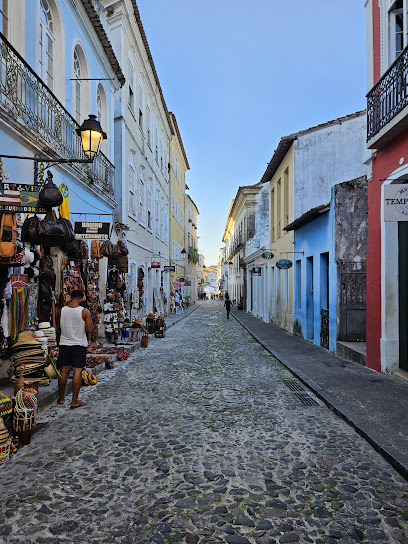
Museu Tempostal
Explore a captivating collection of postcards & photographs showcasing Salvador's history at this Pelourinho museum.
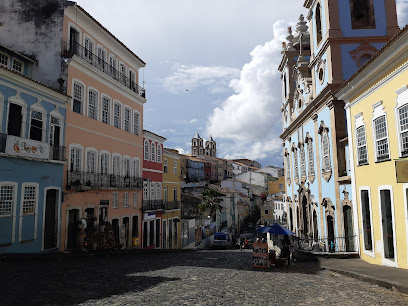
Praça das Artes
Discover Salvador's vibrant arts scene in the heart of Pelourinho, where culture, history, and modern expression converge.
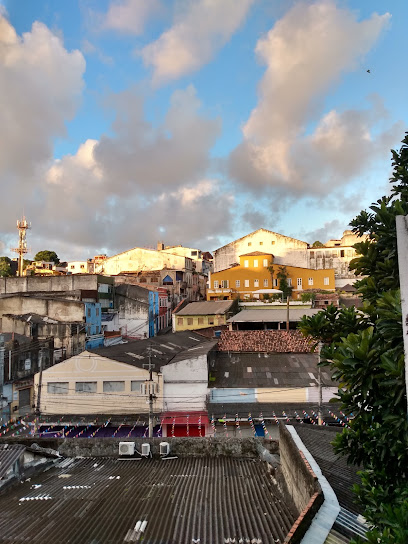
Essential places to dine
Odoyá
Discover the authentic flavors of Bahia at Odoyá, where traditional and seafood cuisine come together in a vibrant setting.
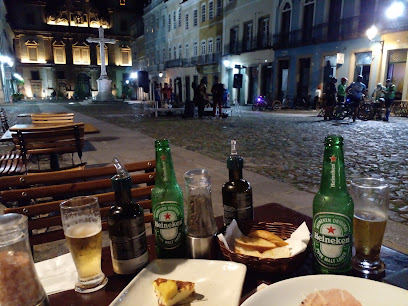
Cuco Bistrô
Discover the vibrant flavors and rhythms of Salvador at Cuco Bistrô - where exquisite seafood meets lively entertainment.
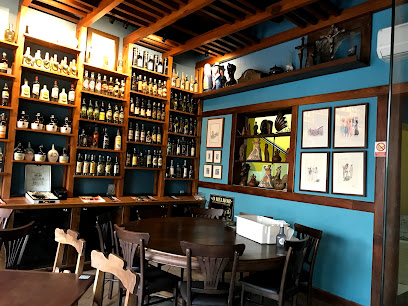
O Coliseu
Experience authentic Brazilian cuisine at O Coliseu in Salvador's historic Pelourinho district - where every dish tells a story.
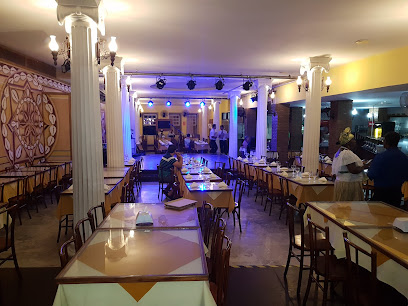
Mariposa
Discover authentic Bahian cuisine at Mariposa in Pelourinho – a culinary journey through Salvador's rich flavors.
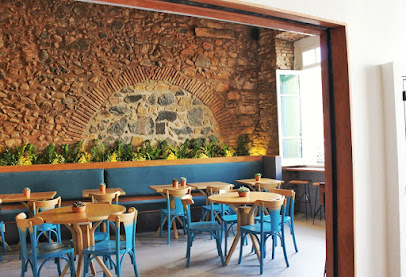
Maria Mata Mouro
Experience the vibrant flavors of Bahia at Maria Mata Mouro - Salvador's gem in Pelourinho offering authentic Brazilian cuisine.
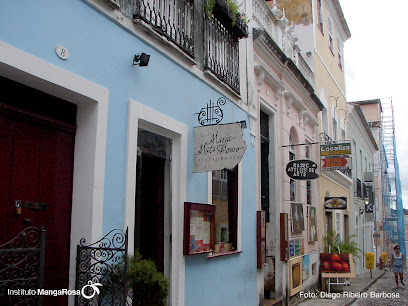
Bar and Restaurant Axego
Discover authentic Brazilian cuisine at Axego Bar and Restaurant in Salvador's historic Pelourinho district.
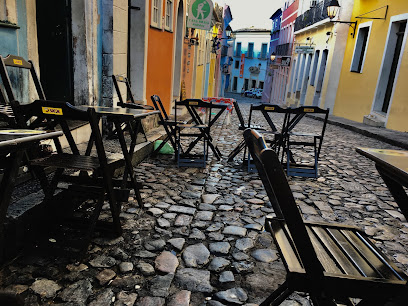
Boteco do Pelourinho
Discover vibrant flavors and traditional dishes at Boteco do Pelourinho in Salvador's historic heart.
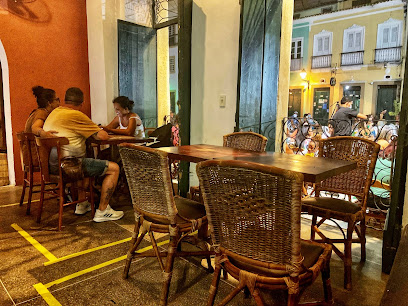
Restaurante Uauá
Experience authentic Bahian cuisine at Restaurante Uauá in Salvador’s historic Pelourinho district—where flavor meets culture.
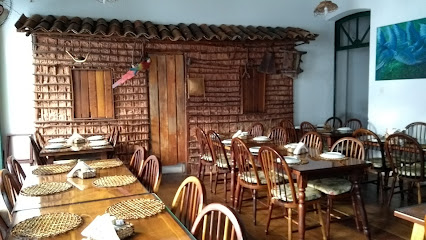
Sorriso da Dadá
Experience authentic Bahian seafood at Sorriso da Dadá in Pelourinho – where every dish tells a story.
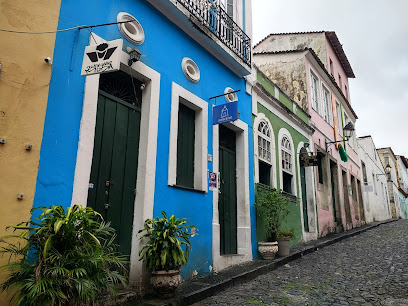
Donna Pimenta
Experience authentic Bahian cuisine at Donna Pimenta in Salvador's historic Pelourinho district – where tradition meets flavor!
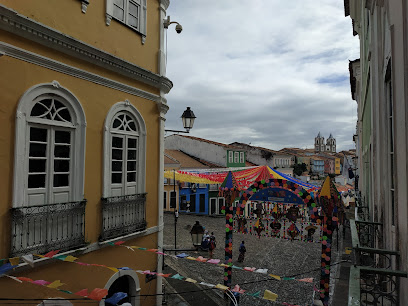
Markets, malls and hidden boutiques
Pierim Souvenirs - Pelourinho
Explore the vibrant culture of Salvador at Pierim Souvenirs - Pelourinho, where unique local crafts and friendly service await.
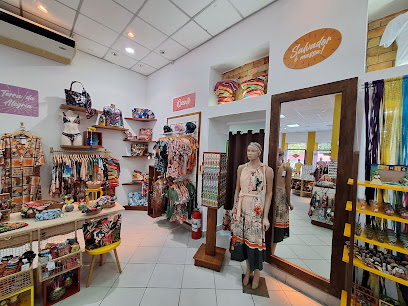
Shopping do Pelô
Explore the vibrant world of Bahia's artistry at Shopping do Pelô, a gift shop filled with unique local crafts and unforgettable souvenirs.
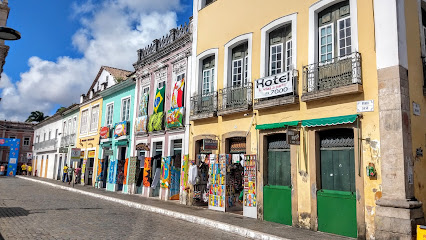
Sal da Terra - Pelourinho
Explore the vibrant fashion scene at Sal da Terra, a unique clothing store in Salvador's historic Pelourinho district, reflecting Bahia's rich culture.
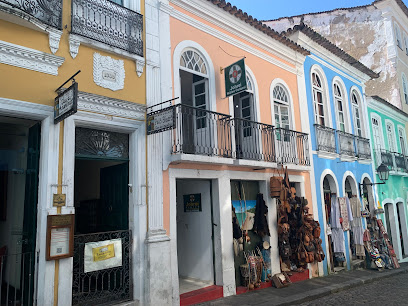
Dendê
Discover the vibrant spirit of Bahia at Dendê, your go-to souvenir store in Salvador's historic Pelourinho district.
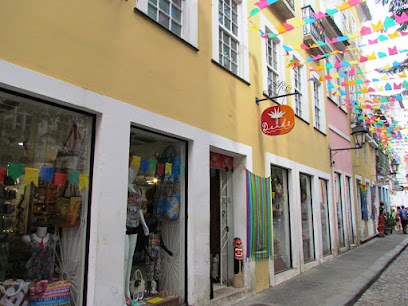
Coração da Bahia
Discover vibrant beachwear at Coração da Bahia in the heart of Salvador’s historic Pelourinho district, where local culture meets coastal fashion.
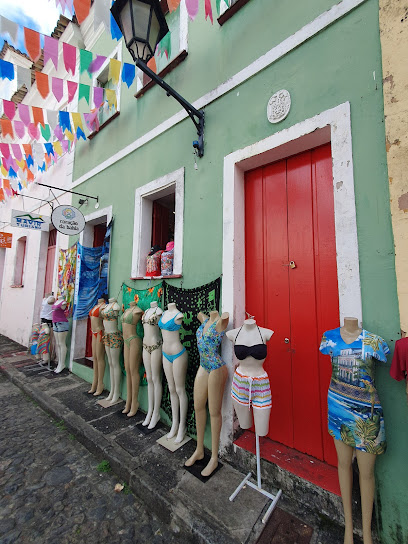
Shopping do Pelourinho
Discover the vibrant world of fabrics at Shopping do Pelourinho, where Salvador's rich culture comes alive through colorful textile creations.
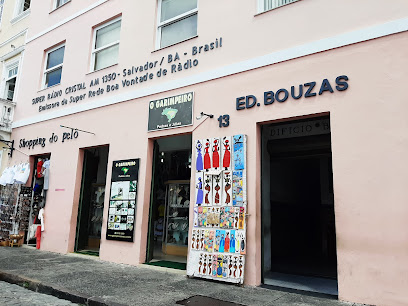
Salvador Bahia
Discover the vibrant gift shop in Salvador Bahia, where local arts and crafts come together in a colorful celebration of Bahian culture.
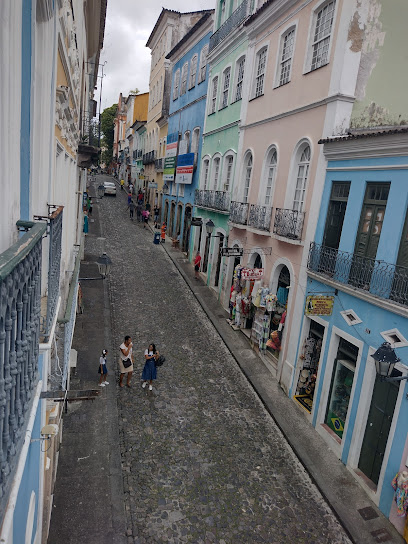
Boutique A Mulherada
Explore your creativity at Boutique A Mulherada, a vibrant art supply store in the historic Pelourinho district of Salvador, Brazil.

Sol da Terra Artesanatos Artigos para Presente e Confe
Discover the essence of Bahia at Sol da Terra Artesanatos, where handcrafted gifts and local art reflect Salvador's vibrant culture.
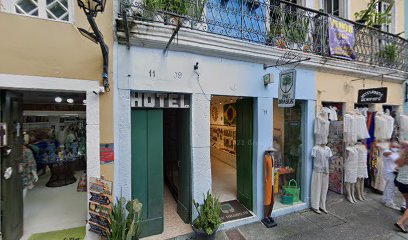
Viabrasilmodaearte
Explore the vibrant Viabrasilmodaearte in Salvador for unique fashion and art that reflects the rich Bahian culture.
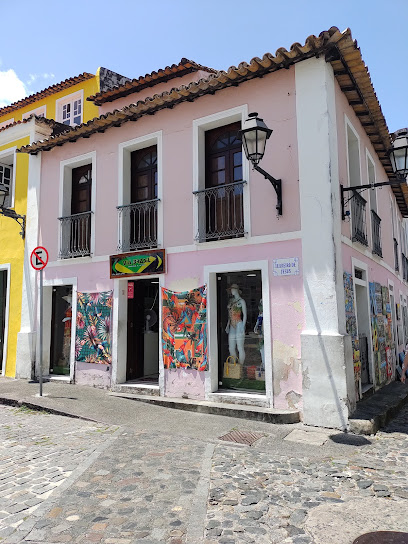
Essential bars & hidden hideouts
O cravinho
Discover O Cravinho in Salvador for a vibrant cocktail experience blending local flavors and lively atmosphere in the heart of Pelourinho.
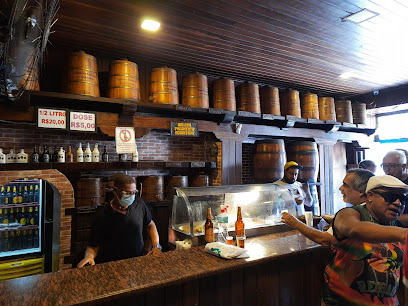
Negro's Bar
Discover the lively spirit of Salvador at Negro's Bar, where authentic cuisine and vibrant nightlife create unforgettable memories.
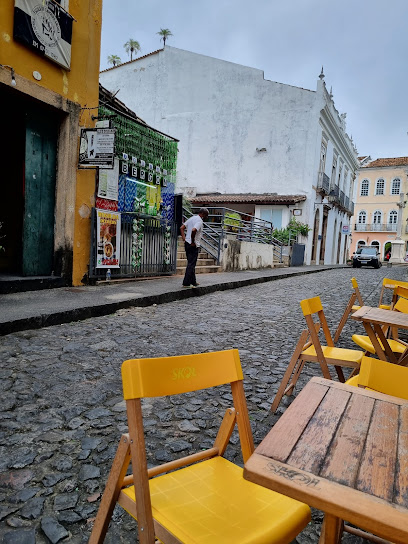
Clube do Samba
Discover the vibrant essence of Salvador at Clube do Samba, where music, dance, and local flavors create an unforgettable experience.
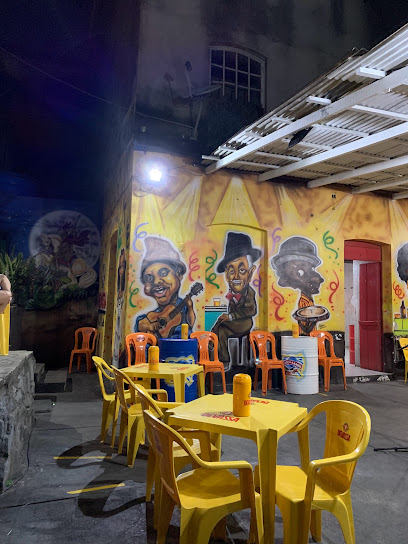
Bar do Carmo
Immerse yourself in the lively spirit of Salvador at Bar do Carmo, where local culture and delicious drinks await in the heart of Pelourinho.
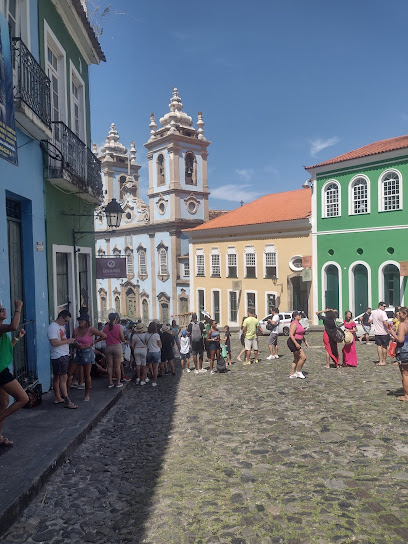
Owl's den - Toca da coruja bar
Experience the vibrant nightlife at Owl's Den - Toca da Coruja Bar in Pelourinho, where culture meets unforgettable cocktails.
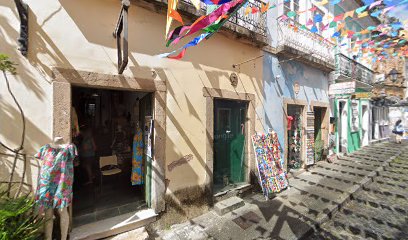
Bar Cravo & Canela
Experience Salvador's vibrant nightlife at Bar Cravo & Canela, a cozy bar in the heart of Pelourinho, serving up authentic Brazilian drinks.
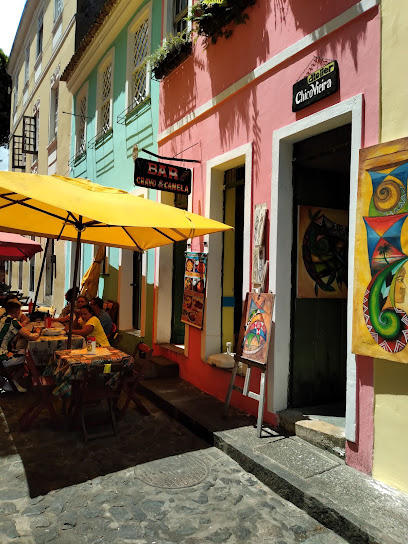
Kibe & Cia
Experience the vibrant culture and flavors of Bahia at Kibe & Cia, a lively bar located in the heart of Salvador's Pelourinho district.
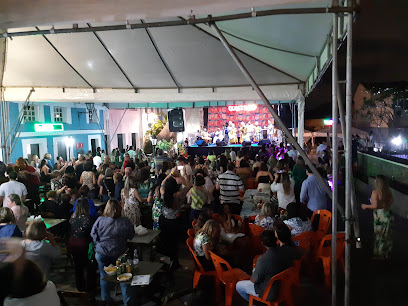
Conforto Bar e Restaurante
Discover the vibrant flavors and rich culture of Bahia at Conforto Bar e Restaurante in the heart of Pelourinho, Salvador.
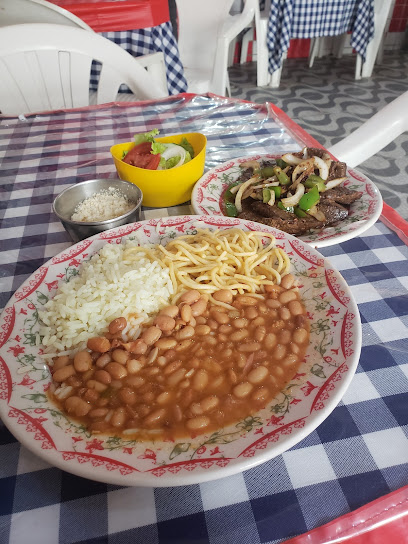
Bar Preto Velho
Experience the vibrant culture of Salvador at Bar Preto Velho, a lively bar in the historic Pelourinho district, perfect for relaxing and enjoying local drinks.
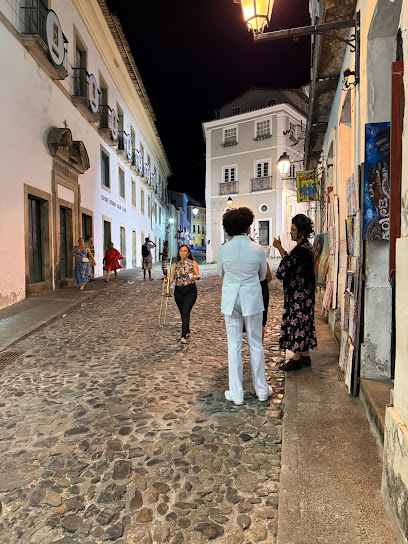
Sala do reboco
Experience the vibrant nightlife of Salvador at Sala do Reboco, a bar that offers authentic local flavors and lively music in the heart of Pelourinho.

Local Phrases
-
- HelloOlá
[oh-lah] - GoodbyeTchau
[chow] - YesSim
[seem] - NoNão
[now] - Please/You're welcomePor favor/De nada
[por fah-vohr/de nah-dah] - Thank youObrigado(a)
[oh-bree-gah-doh(ah)] - Excuse me/SorryCom licença/Desculpe
[kohm lee-sen-sah/dehs-kool-peh] - How are you?Como vai?
[koh-moh vah-ee] - Fine. And you?Bem. E você?
[behn/eh voh-seh] - Do you speak English?Você fala inglês?
[voh-seh fah-lah een-glehsh] - I don't understandEu não entendo
[eh-oo now ehn-tehn-doh]
- HelloOlá
-
- I'd like to see the menu, pleaseEu gostaria de ver o cardápio, por favor
[eh-oo goh-stah-ree-ah deh vehr ooh kahr-dah-pyoo/por fah-vohr] - I don't eat meatEu não como carne
[eh-oo now koh-moh kahr-neh] - Cheers!Saúde!
[sah-oo-deh] - I would like to pay, pleaseEu gostaria de pagar, por favor
[eh-oo goh-stah-ree-ah deh pah-gahr/por fah-vohr]
- I'd like to see the menu, pleaseEu gostaria de ver o cardápio, por favor
-
- Help!Ajuda!
[ah-zhoo-dah] - Go away!Vá embora!
[vah ehm-boh-rah] - Call the Police!Chame a polícia!
[shah-mee ah poh-lee-see-ah] - Call a doctor!Chame um médico!
[shah-mee oom meh-dee-koo] - I'm lostEstou perdido(a)
[eh-stoh pehr-dee-doh(ah)] - I'm illEstou doente
[eh-stoh doo-ehn-teh]
- Help!Ajuda!
-
- I'd like to buy...Eu gostaria de comprar...
[eh-oo goh-stah-ree-ah deh kohm-prahr] - I'm just lookingEstou só olhando
[eh-stoh soh oh-lyahn-doh] - How much is it?Quanto custa?
[kwahn-too koos-tah] - That's too expensiveIsso é muito caro
[ee-soh eh mwee-toh kah-roh] - Can you lower the price?Você pode baixar o preço?
[voh-seh poh-deh bigh-shahr ooh preh-soh]
- I'd like to buy...Eu gostaria de comprar...
-
- What time is it?Que horas são?
[keh oh-rahz sah-oh] - It's one o'clockÉ uma hora
[eh oo-mah oh-rah] - Half past (10)Meio-dia e meia (10)
[may-oh jee-ah ee may-ah (10)] - MorningManhã
[mah-nyah] - AfternoonTarde
[tahr-deh] - EveningNoite
[noy-teh] - YesterdayOntem
[ohn-tehn] - TodayHoje
[oh-jee] - TomorrowAmanhã
[ah-mah-nyah] - 1Um
[oom] - 2Dois
[doh-ees] - 3Três
[trehs] - 4Quatro
[kwah-troh] - 5Cinco
[seen-koh] - 6Seis
[say-ees] - 7Sete
[seh-teh] - 8Oito
[oy-toh] - 9Nove
[noh-veh] - 10Dez
[deh-z]
- What time is it?Que horas são?
-
- Where's a/the...?Onde fica...?
[ohn-deh fee-kah] - What's the address?Qual é o endereço?
[kwahl eh oo ehn-deh-reh-soh] - Can you show me (on the map)?Você pode me mostrar (no mapa)?
[voh-seh poh-deh meh moh-strahr (noh mah-pah)] - When's the next (bus)?Quando é o próximo (ônibus)?
[kwahn-doo eh oo proh-ksee-moh (oh-nee-boos)] - A ticket (to ....)Um bilhete (para ....)
[oom beel-yeh-teh (pah-rah)]
- Where's a/the...?Onde fica...?
History of Pelourinho
-
Pelourinho, the historic heart of Salvador, was established during the early 16th century as the first capital of Brazil. Founded by the Portuguese in 1549, it became a vital center for the sugar trade, which was the backbone of the colonial economy. The area is characterized by its colonial architecture, with colorful buildings that reflect the wealth generated from the sugar plantations.
-
During the 17th and 18th centuries, Pelourinho became notorious for its role in the transatlantic slave trade. The name 'Pelourinho' itself translates to 'pillory,' a reference to the public punishment of enslaved people. This dark chapter significantly shaped the cultural landscape of Salvador, leading to the rich Afro-Brazilian culture that is celebrated today. The influence of African traditions can be seen in the music, dance, and religious practices that permeate the neighborhood.
-
The 18th century brought a wave of Baroque architecture to Pelourinho, with the construction of several important churches, including the Church of São Domingos and the Church of the Third Order of Saint Francis. These structures not only served religious purposes but also became symbols of the wealth and power of the colonial elite. The intricate designs and artwork within these churches reflect the fusion of European and African artistic traditions.
-
By the 19th century, Pelourinho experienced a decline as the city expanded and economic activities shifted. Many of the historic buildings fell into disrepair. However, in the 20th century, efforts began to preserve this UNESCO World Heritage site. Restoration projects were initiated, and Pelourinho was revitalized as a cultural and tourist destination, showcasing its historical significance and vibrant street life.
-
Today, Pelourinho is recognized as a cultural epicenter of Salvador. It hosts numerous festivals, including the famous Carnival, and is home to various museums, art galleries, and cultural institutions that celebrate its rich history. The neighborhood continues to be a focal point for Afro-Brazilian culture, with lively performances of capoeira and samba echoing through its cobblestone streets.
Pelourinho Essentials
-
Pelourinho is easily accessible from various neighborhoods in Salvador. If you're arriving from the Airport, take a taxi or an Uber for a direct route, which takes around 30-40 minutes. From the Barra neighborhood, you can take the Line 2 subway to the Campo da Pólvora station and then walk or take a taxi to Pelourinho, which is about a 15-minute walk. Local buses also connect Pelourinho with other neighborhoods like Ribeira and Santo Antonio, but be mindful of the bus schedules.
-
Pelourinho is a pedestrian-friendly area with many attractions within walking distance. The cobblestone streets are best navigated on foot. There are also bicycle rental services available if you prefer to cycle. For longer distances, local taxis or ride-sharing services like Uber are accessible. Be cautious with public transport options, as they can be crowded and less secure.
-
While Pelourinho is a popular tourist destination, it is essential to remain vigilant. Petty crimes, such as pickpocketing, can occur, especially in crowded areas. Avoid walking alone at night and stay away from the areas surrounding the Praça da Sé after dark, as they are known for higher crime rates targeting tourists. Always keep your belongings secure and consider using a money belt.
-
In case of emergency, dial 190 for police assistance or 192 for medical emergencies. The nearest hospital is Hospital Geral do Estado da Bahia, located approximately 10 minutes away by taxi. It is advisable to have travel insurance covering medical emergencies. For minor health issues, visit a local pharmacy, which can also provide over-the-counter medications.
-
Fashion: Do wear comfortable shoes for walking, as streets are cobblestoned. When visiting churches, do dress modestly. Don't wear overly revealing clothing. Religion: Do respect local customs and traditions; always cover your shoulders and knees when entering religious sites. Public Transport: Do be polite and give up your seat to elderly passengers. Don't eat or drink on public transport. Greetings: Do greet locals with a friendly 'Olá' and a smile. Don't be overly formal, as Bahia culture is quite relaxed. Eating & Drinking: Do try local dishes like acarajé and moqueca. Don't drink tap water; always opt for bottled water.
-
To experience Pelourinho like a local, visit the Mercado Modelo for authentic Bahian crafts and foods. Join a capoeira class or watch a performance in the streets, as it is a significant part of local culture. Attend a Candomblé ceremony if possible, but ensure you are respectful and follow any guidelines. Don't hesitate to engage with local artists and musicians; they are often eager to share their stories and traditions.
Nearby Cities to Pelourinho
-
Things To Do in Recife
-
Things To Do in Fortaleza
-
Things To Do in Brasília
-
Things To Do in Rio de Janeiro
-
Things To Do in São Paulo
-
Things To Do in Florianópolis
-
Things To Do in Hernandarias
-
Things To Do in Foz do Iguaçu
-
Things To Do in Puerto Iguazú
-
Things To Do in Villarrica
-
Things To Do in San Bernardino
-
Things To Do in Ypacarai
-
Things To Do in Aregua
-
Things To Do in Encarnacion
-
Things To Do in Asuncion













